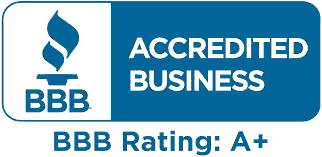Financial Red Flags: Signs Your Finances are in Trouble
Financial problems rarely happen overnight. In fact, if you know what to look for, you can spot money problems far before they get out of control. Are your finances on the right track, or are they starting to veer off course? Here are five red flags that might mean you’re headed for trouble:
- You don’t have savings and/or an emergency fund. This is a big one. Most financial experts say you should have enough money saved up to cover your living expenses – rent or mortgage payments; bills; gas; food; and so on – for at least three months. If you don’t have that much, you should have at least a few hundred bucks in the bank to cover unexpected expenses, like car or home repairs.
You may not be able to come up with three months’ worth of living expenses overnight – but you can start saving right now. Decide on an amount that you can live with, even if it’s only $15 or $20 a month, and start putting that money into a separate savings account. And then, don’t touch it. The money will start to add up faster than you’d expect – and the next time an emergency comes up, you’ll have the cash on hand to deal with it.
- You carry a balance on your credit card(s). I’ve said it before, and I’ll say it again: There’s a lot to be said for responsible credit card use. Used wisely, a credit card can help you build up a good credit history – and good credit history is essential if you ever want to, say, buy a house or a car. But all too often, people use credit cards as an extra source of income.
The only true way to use a credit card responsibly is to make a few purchases and then pay it off – completely – every month. Carrying a balance (even a small one) is a sign that your finances are getting out of control.
- You use payday loans to make ends meet. Payday loan companies prey on folks who are in serious financial trouble. They give out small, short-term loans – usually around a few hundred dollars – and they charge astronomical interest rates. Payday loans – or “cash advances,” as they’re sometimes called – are bad news, and resorting to them is a sure sign that something’s amiss, financially speaking.
- You feel the need to hide your spending or debt. Often, people with money problems hide their less-than-responsible behavior from family and friends. A few common red flags include: hiding credit card statements; going on secretive, solo spending sprees; or opening new lines of credit without telling your spouse. Not only can these behaviors put extra financial strain on your family, they can also lead to relationship problems. If you’ve been secretive about your financial woes, it’s time to come clean.
- You’ve had more than one overdraft, late charge, or past due reminder in the last 12 months. Sure, everyone makes mistakes from time to time. You misplace your electric bill, or you forget to make a deposit or transfer and end up bouncing a check. These kinds of things can happen to anyone. But if you find that you’re regularly losing money on overdraft fees or being bombarded with past due notices from bill collectors, you’re not simply making mistakes. Chances are, you’re avoiding your bills or having to choose which ones to pay and which ones to put off – and that’s a huge red flag.
Even one of these red flags is cause for concern – and if you can relate to more than one of them, it may be time to take a serious look at your finances. Remember, it’s never too late to turn things around. Reach out to friends and family for advice; stop hiding your money problems; and work with your credit card companies to start paying down your debt. If you feel overwhelmed, you may want to consider working with a reputable credit counseling service.

 We offer FREE Debt Counseling. Get answers to lower or eliminate your debts.
We offer FREE Debt Counseling. Get answers to lower or eliminate your debts.
